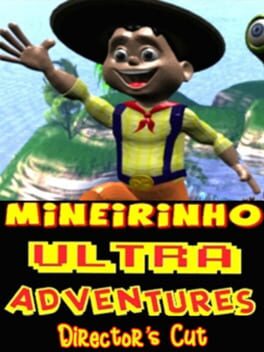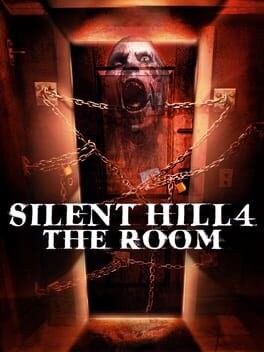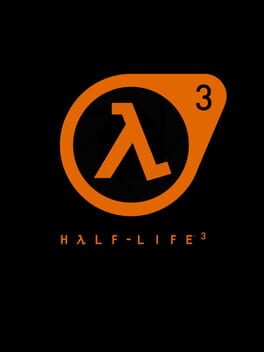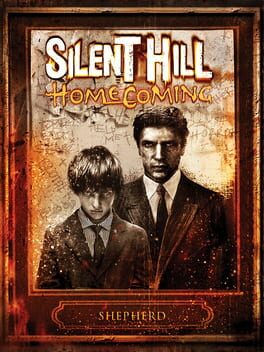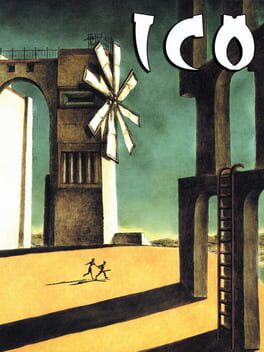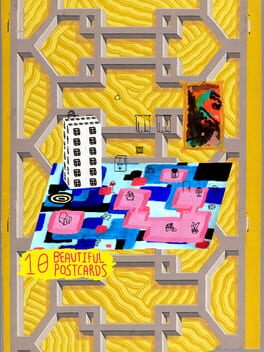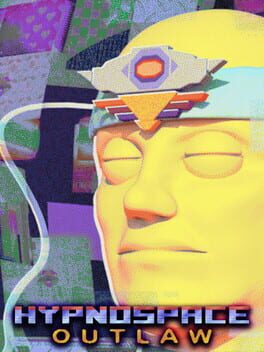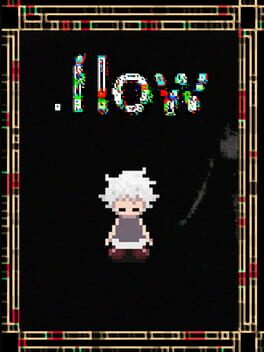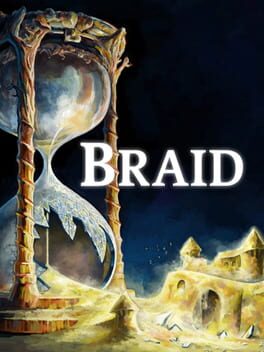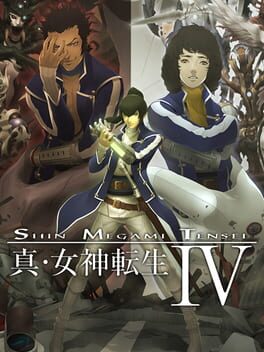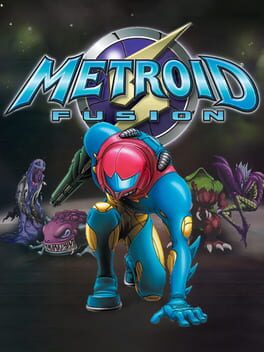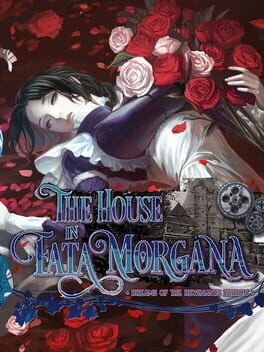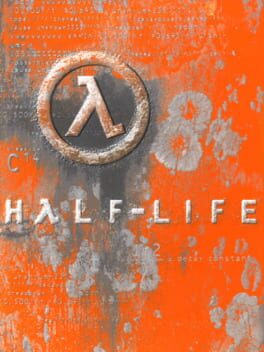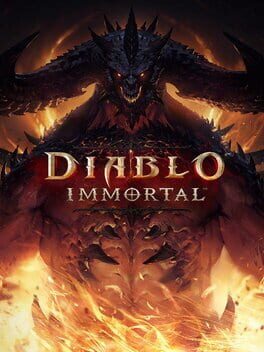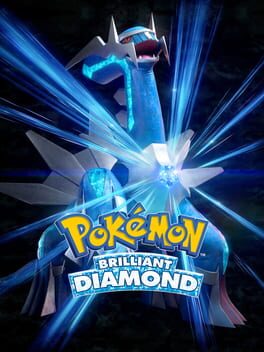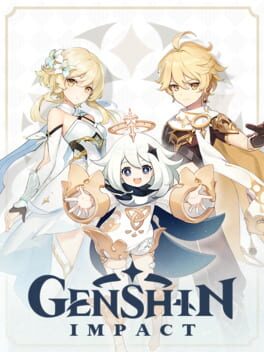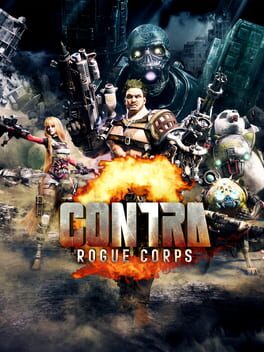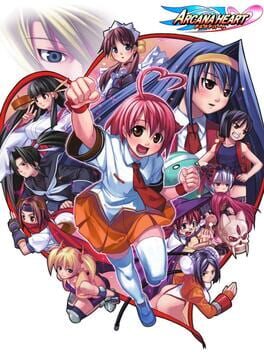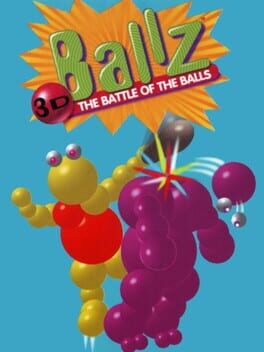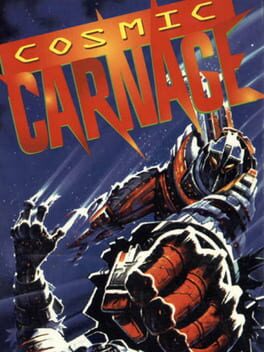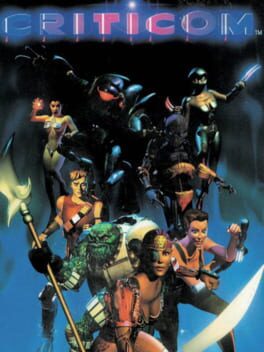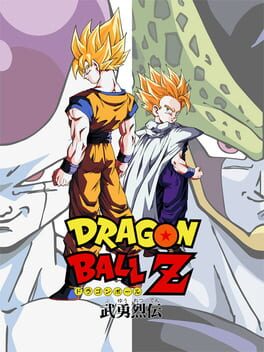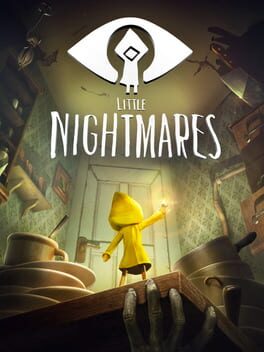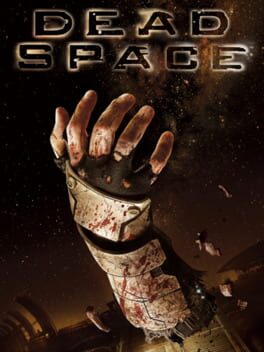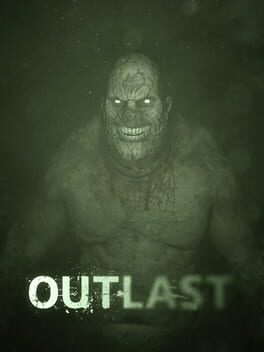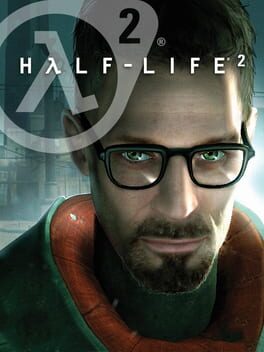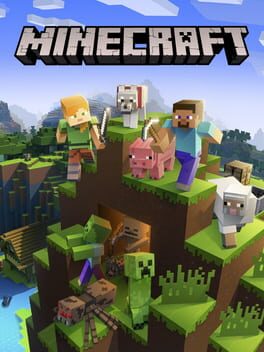OZe
15 reviews liked by OZe
Vengeance as a preordained impulse. Ellie exists as an emblem of trauma and the player as the casual observer to her building pain and guilt, only extending a hand to act out her violent and reactionary compulsions through button prompts and extensive combat sections. It's horrifying to witness and partake in, but bleakly honest to how rage can drive a person to the limit of their foundational moral standards. The game doesn't force the player through these tribulations as punishment but to underscore the dissonance between how we perceive a character and what they want and how ultimately the player is rendered powerless against the sheer density of said character's desire to fulfill their own needs. Ellie, as her character is expressed by her creators, essentially is an unstoppable force and for better and worse the player is seemingly culpable in the rampage that follows from years of gathered wounds and the traumatic event that sparks the fire. It's difficult to fully accept how this unwavering dynamic shapes this sprawling, brutal, and droning depiction of the cyclical chain of violence and the endless ripples that emanate but the outcome is a streamlined, urgent, and anxious experience that bravely tests patience and comfort levels.
This game is minutely orchestrated to make us feel the weight of our actions however it's not a shallow critique of the player or the characters as many have labeled it but rather acts as a vehicle for perceptive empathy, where through exploration of its dense cityscape and weaving through religious/militant societies, we form our own thematic narratives of what it means to forgive and to understand what drives a person to animalistic madness in a world beyond saving. You get out of this game what you put in. It can be manipulative and cynical, one that tests the line between acceptably nuanced and crudely exploitative. It's in the viciously realized second half where players will either be moved by the innate thesis of what Druckmann and his team have patiently built up or will emotionally tap out and be disgusted by the extent of which they have chosen to take its nihilism. Once the game barrels towards its unyielding finale, I found myself exhausted but utterly immersed. As the executor of Ellie's monstrosity I had become a mere shell of all the atrocity I had committed throughout the game. As the hypnosis of obsession took hold, it rang in my mind the wailing of grief and shrieks of pain I caused and the haunting stillness of Seattle left in disarray.
On a spiritual level I can understand the disdain towards this. In its searing closing set-piece I found it painfully difficult to go through with the final actions and considered stepping away, out of fear that the entire thematic arc I built up in my mind would fall apart. I was at an emotional impasse in which the developer's concluding decisions skirted between satisfying the majority and sacrificing my good will or coming through with the grand ambition from the rest of the game for something special. For me, they made the right choices in the end. This is a massively self indulgent and exposed work of art not unlike how a filmmaker such as Von Trier or Bergman frame their characters as thematic devices; tools to enact the verbosity of human savagery and suffering. On top of that the rampant crunch culture that infects the industry at large reared its ugly head as I marveled at the masterfully designed visual compositions, intense attention to detail of the city itself, and the peerless facial animations that enhance the already terrific cast (Bailey and Johnson give two of the best performances of the year).
This game, to many's disappointments (and my own initially), ruptures the brilliant ambiguity of the first's ending. Why this works is because this is no longer about whether or not a cure is possible or the moral cost of such a cure, but bluntly asks if this is a world deserving of a cure. Despite humanity persisting through resourcefulness and the binds of community it remains eternally tied to the bonds of systemic oppression. The true villain is the idea that we can ever "go back" to the normality that defined past generations' idea of capitalistic order. Chasing the notion of the "American Dream" amidst the rubble of our destruction. Reality is, as showcased by the divide between communities, nothing has changed. Nature has just taken control and has chosen to wipe away the debt. Flawed ideologies are still rampant but are now weaponized by the primal instincts to survive at all costs. Part II acts as a possessed refraction to the previous entry's concept of the perseverance of hope amidst pastoral landscapes. The first game had giraffes and a colorful "road trip" structure to hammer in the expansive nature of Ellie and Joel's journey. In contrast, this is a pitifully inert plateau crowned by the aching consequences that acting from ardent and undying love alone can bring. The rotted, stinking corpse of aforementioned giraffe.
Anyways, most certainly will be game of the year. I both dread and anticipate the inevitable replay on PS5. I doubt anything from 2020 in all mediums of art (film, tv, music, etc) will effect me as deeply and irrevocably as this.
This game is minutely orchestrated to make us feel the weight of our actions however it's not a shallow critique of the player or the characters as many have labeled it but rather acts as a vehicle for perceptive empathy, where through exploration of its dense cityscape and weaving through religious/militant societies, we form our own thematic narratives of what it means to forgive and to understand what drives a person to animalistic madness in a world beyond saving. You get out of this game what you put in. It can be manipulative and cynical, one that tests the line between acceptably nuanced and crudely exploitative. It's in the viciously realized second half where players will either be moved by the innate thesis of what Druckmann and his team have patiently built up or will emotionally tap out and be disgusted by the extent of which they have chosen to take its nihilism. Once the game barrels towards its unyielding finale, I found myself exhausted but utterly immersed. As the executor of Ellie's monstrosity I had become a mere shell of all the atrocity I had committed throughout the game. As the hypnosis of obsession took hold, it rang in my mind the wailing of grief and shrieks of pain I caused and the haunting stillness of Seattle left in disarray.
On a spiritual level I can understand the disdain towards this. In its searing closing set-piece I found it painfully difficult to go through with the final actions and considered stepping away, out of fear that the entire thematic arc I built up in my mind would fall apart. I was at an emotional impasse in which the developer's concluding decisions skirted between satisfying the majority and sacrificing my good will or coming through with the grand ambition from the rest of the game for something special. For me, they made the right choices in the end. This is a massively self indulgent and exposed work of art not unlike how a filmmaker such as Von Trier or Bergman frame their characters as thematic devices; tools to enact the verbosity of human savagery and suffering. On top of that the rampant crunch culture that infects the industry at large reared its ugly head as I marveled at the masterfully designed visual compositions, intense attention to detail of the city itself, and the peerless facial animations that enhance the already terrific cast (Bailey and Johnson give two of the best performances of the year).
This game, to many's disappointments (and my own initially), ruptures the brilliant ambiguity of the first's ending. Why this works is because this is no longer about whether or not a cure is possible or the moral cost of such a cure, but bluntly asks if this is a world deserving of a cure. Despite humanity persisting through resourcefulness and the binds of community it remains eternally tied to the bonds of systemic oppression. The true villain is the idea that we can ever "go back" to the normality that defined past generations' idea of capitalistic order. Chasing the notion of the "American Dream" amidst the rubble of our destruction. Reality is, as showcased by the divide between communities, nothing has changed. Nature has just taken control and has chosen to wipe away the debt. Flawed ideologies are still rampant but are now weaponized by the primal instincts to survive at all costs. Part II acts as a possessed refraction to the previous entry's concept of the perseverance of hope amidst pastoral landscapes. The first game had giraffes and a colorful "road trip" structure to hammer in the expansive nature of Ellie and Joel's journey. In contrast, this is a pitifully inert plateau crowned by the aching consequences that acting from ardent and undying love alone can bring. The rotted, stinking corpse of aforementioned giraffe.
Anyways, most certainly will be game of the year. I both dread and anticipate the inevitable replay on PS5. I doubt anything from 2020 in all mediums of art (film, tv, music, etc) will effect me as deeply and irrevocably as this.
Content warning for non-explicit discussion of real life death, expulsion of bodily waste and fluids, pregnancy, childbirth, needle use in a medical context
-------------------------------------------------------------------------------------------------------------------------
I am a woman. My experience as a woman is one of the less common ones, statistically, because I didn’t have it in me to assert that I was one until a good quarter century after most women are informed that this is what they are. That there are rules to this, and ways to perform womanhood, and perhaps most importantly for a lot of people, certain baseline genetic requirements that separate women from non-women. That last part is the sticky one for me, and because of this there are a lot of people out in the world who hate me, who want me to simply not be. Many of these people are powerful and they make decisions every day about my privilege to exist, but many many more of them are regular people out in the world. Sometimes it’s easy to tell who they are by the looks they give, the things they say; sometimes it’s not so immediately obvious. It is stressful to go outside, often, and occasionally it is outright difficult. Nevertheless, I am a woman.
-------------------------------------------------------------------------------------------------------------------------
Julia Kristeva is a Bulgarian-French writer who has been prolific in many fields over her six decades of writing, but I often find myself thinking of her most famous work, one of her earliest publications - 1980’s Powers of Horror: An Essay on Abjection, because it is the only thing by her that I’ve read. It’s a 200-ish page book that builds heavily on old Freudian theory to, among other things, consider the ways people use powerfully negative experiences to define and value the self.
Kristeva defines abjection like this: “The human reaction to a threatened breakdown in meaning caused by the loss of the distinction between subject and object or between self and other.” Abjection, in a way, forces us to choose our identity; we define ourselves via rejection, by how we think of ourselves in opposition to things that disgust or harm us. It preys upon this idea of selfhood, of the boundaries we construct and maintain to create identity. It preys upon the divisions we create when we erect these boundaries. One example of this that Kristeva uses is things we naturally expel from our bodies, stuff like blood from a wound, teeth that fall out, semen, piss, shit, vomit. One second these things are subject – they’re part of you – and the next they’re object – separate from you entirely. This may not seem like much but this intrinsic mental separation from what was a part of you as soon as it leaves your body highlights how fragile these boundaries actually are.
I am, because I am not.
Kristeva thinks it’s a thin line.
She most often frames abjection in terms of violence, revulsion, disgust, and trauma. And it’s true that we tend to use the word “abject” as a maximalist adjective to highlight negative things. Abject terror. Abject misery. Abject poverty. But for Kristeva it’s not actually a bad thing in the grand view; on the contrary it’s an essential part of making us who we are as a collective and as individuals. She talks a lot about childbirth as the first moment of abjection. Birth being as much a kid fighting to live, to create a self, a sense of being, even as they tear away from the safety of their mother’s womb. It’s an inherently violent act and it’s the only way to become. It’s an ongoing process throughout life; kids have values imposed on them - language, culture, law - all things contrary to totally natural impulses but also things that most of us agree are necessary for them to grow into society as we know it. This is a process that repeats constantly throughout life to varying degrees. It can be painful, horrible, and disgusting, but it’s necessary. These experiences sharpen our sense of who we are, in our sense of opposition to the things that cause us pain, horror, and disgust.
I am not, so I am.
-------------------------------------------------------------------------------------------------------------------------
Silent Hill 4: The Room has, if I’m remembering all My Gaming from last year correctly, the largest cast of characters of any Team Silent game, but it is almost entirely concerned with the thematic opposition of its player character, Henry Townshend, and its central figure and villain, Walter Sullivan. Henry is cursed, you see, trapped inside of his apartment by supernatural forces, unable to be seen or heard by anyone on the outside even as he becomes increasingly aware of a deadly, ghostly threat haunting the complex and its inhabitants. Walter uh, IS that threat, the ghost of a serial killer returned partially from the grave to finish his cruel sacrament with the six-ish murders he had to leave off in life (all according to his grand plan, of course). His ultimate goal, it’s eventually revealed, is to get permanent access to Henry’s apartment, which he sees as the vessel for his own mother, whose spirit he believes will awaken when he completes his twenty-one ritual murders.
Walter has a tragic past, raised within an evil cult, abused constantly by his caretakers, turned out onto uncaring streets with only his brainwashing and occult dogma to motivate him to go on. He’s a man who experiences moments of abjection and rejects them, becoming singularly focused on rescinding his identity. He is in constant pursuit of a mother he doesn’t remember, his mission to return permanently to the safety of her womb, where he can exist eternally, unburdened and unfettered by both his trauma and his self.
In all of the early Silent Hill games, aspects of the world take on attributes specific to the psyches of particular characters central to the story, and in The Room that person is Walter himself, whose fears and hates dictate the worlds that Henry and his neighbors are dragged into throughout the game. Walter’s fears are decidedly more mundane than previous Silent Hill fear generators, with environments like normal forests and subway stations, urban blocks and apartment complexes. Walter is afraid of, generally speaking, the Out There. He wants to retreat. Enemies are other people. They squish, they slurp, they burp grotesquely (bodily expulsion is a hallmark of abject experience, remember). Ghosts pursue you doggedly, without pause, and the worst thing they can do is just be present, their very auras radiating sinister energy that hurts Henry without action.
Henry himself is a mirror to Walter, trapped seemingly eternally in the thematic womb, his only escape the long long tunnel that forms in his bathroom wall, one that spawns him into these frightening outside worlds, often in the fetal position (I know writers who use subtlety and they’re all cowards, etc). While he does face trauma in these worlds and after every moment of abjection retreats back to his apartment for nourishment and healing, Henry does, ultimately, want to get the fuck outta there bro. He’s desperate for human connection too (and connection beyond murder – his moments of abjection always come via Walter doing something fucked up to one of his neighbors), desperate enough to peep on his direct next door neighbor Eileen through a hole that a previous tenant left in their shared wall. Tellingly, Henry can’t even begin to have a real connection to Eileen, or anyone, until he symbolically begins to separate himself from the room; once they meet for real and succeed in evading Walter’s attacks for the first time, the room stops healing Henry, and becomes open to hauntings that actively harm him.
The titular room is Henry’s place of refuge and comfort, at first, but it’s also his ultimate enemy. This is true the entire game, not just after Walter’s influence begins to infect the space. He’ll die if he stays here. He has precious little food, and during gameplay he gives away his last bottle of chocolate milk (milk being one of Kristeva’s confessed personal objects of great disgust, in a moment of fun serendipity). He has no one to interact with, and even though it’s stated in game that he was not a social guy before he was cursed, once you’re down to zero everything seems like a lifeline. Eventually, of course, he’ll be literally killed by the curses that infect the room. He can’t stay. He needs to be born, and he knows it. It’s a false security, and it intrinsically can’t last.
Walter and Henry aren’t the only figures central to the game, though. There is, of course, a third pillar here: you. Er, me. Y’know, The Player. There is essentially nothing to Henry – this is part of why he exists primarily as a thematic contrast to Walter, and part of why it’s hard to ascribe much character to his actions. You’re Henry in large part. When he’s in the apartment you even control him in first person. You are the ultimate voyeur, in the same way that Henry is to Eileen and Walter is to Henry. And this is part of why Walter’s worlds and the creatures that populate them are on the surface so much more generic than the places and monsters of past games: applicability.
-------------------------------------------------------------------------------------------------------------------------
I have this uncle who died in his apartment. I didn’t know him, really. From stuff I’ve been told he wasn’t a good guy. I was a kid, and we lived states away. I only met him a handful of times at big family parties. The only reason I ever think about him at all probably is because he died in his apartment, and even then I’ve only started thinking about him so much recently, in the last couple of years, because we’ve all been spending a lot more time in our apartments. It’s covid, bay bee. The reason I think about him so much is because when he died in his apartment, nobody knew. Nobody cared to check in. They only found him, weeks later, because his landlord went into his place because they had assumed he had run out on it because he hadn’t paid rent or responded to any communication, for weeks, because he was dead.
So I think about that a lot the last couple years.
-------------------------------------------------------------------------------------------------------------------------
I mentioned that Walter’s hellscapes are mundane places and his monsters are other people and I do think this is a reflection of where the developers thought maybe a lot of their presumed audience was at when Silent Hill 4 came out. Which is pretty funny. But it’s real, too, for me. There’s not a lot that’s scarier for me as a trans person than An Only Vaguely Familiar Public Place With An Off Vibe. That’s alarm bell central. It’s hard out there, man. Rarely do I feel outright unsafe but often do I feel eyes. It’s difficult to tell a lot of the time if the eyes are real or if I’m inventing them, and that doubt can make it even harder to feel confident in my place in perfectly normal spaces. Just yesterday I was actively frightened waiting in line for the bathroom in an inexplicably crowded gas station in the middle of nowhere in Iowa. You just never know when it’s going to be a problem. I was never the most confident person, but this low level thrum of unease colors every moment of public life. In talking about abjection in an academic sense and especially when talking about fiction it’s easy to forget that part of it is that it is upsetting by nature. But in life it sharpens me. I know who I am.
It’s a harsh dichotomy – every day I am more visibly transgender in more irreversible physical ways. Every day I become more obviously Neither Male Nor Female and while I love this about myself and I am truly happy with these changes they are the same changes that make me less safe and more vulnerable in ways that become harder and harder to cover up with clothes and masks. It would be easy to retreat to my womb, metaphorically. I want to, sometimes. I work remotely on a permanent basis. I live literally across the street from the grocery store. My girlfriend is here, my cats are here, my friends are online.
But I am transforming. Every week I stab myself with a needle. I force through this needle the fluid that makes my body into what I want it to be. A violent transmogrification. I feel the most beautiful in these moments. They are moments of clarity, of self expression, of definition by rejection. I am not a man. I am a woman. This needle in my leg is my signature. Living in fear of living in fear can’t be the way.
I am not who I was. I oppose that. I am becoming. Every week I am new. I need to tear away.
I want to be born.
-------------------------------------------------------------------------------------------------------------------------
I am a woman. My experience as a woman is one of the less common ones, statistically, because I didn’t have it in me to assert that I was one until a good quarter century after most women are informed that this is what they are. That there are rules to this, and ways to perform womanhood, and perhaps most importantly for a lot of people, certain baseline genetic requirements that separate women from non-women. That last part is the sticky one for me, and because of this there are a lot of people out in the world who hate me, who want me to simply not be. Many of these people are powerful and they make decisions every day about my privilege to exist, but many many more of them are regular people out in the world. Sometimes it’s easy to tell who they are by the looks they give, the things they say; sometimes it’s not so immediately obvious. It is stressful to go outside, often, and occasionally it is outright difficult. Nevertheless, I am a woman.
-------------------------------------------------------------------------------------------------------------------------
Julia Kristeva is a Bulgarian-French writer who has been prolific in many fields over her six decades of writing, but I often find myself thinking of her most famous work, one of her earliest publications - 1980’s Powers of Horror: An Essay on Abjection, because it is the only thing by her that I’ve read. It’s a 200-ish page book that builds heavily on old Freudian theory to, among other things, consider the ways people use powerfully negative experiences to define and value the self.
Kristeva defines abjection like this: “The human reaction to a threatened breakdown in meaning caused by the loss of the distinction between subject and object or between self and other.” Abjection, in a way, forces us to choose our identity; we define ourselves via rejection, by how we think of ourselves in opposition to things that disgust or harm us. It preys upon this idea of selfhood, of the boundaries we construct and maintain to create identity. It preys upon the divisions we create when we erect these boundaries. One example of this that Kristeva uses is things we naturally expel from our bodies, stuff like blood from a wound, teeth that fall out, semen, piss, shit, vomit. One second these things are subject – they’re part of you – and the next they’re object – separate from you entirely. This may not seem like much but this intrinsic mental separation from what was a part of you as soon as it leaves your body highlights how fragile these boundaries actually are.
I am, because I am not.
Kristeva thinks it’s a thin line.
She most often frames abjection in terms of violence, revulsion, disgust, and trauma. And it’s true that we tend to use the word “abject” as a maximalist adjective to highlight negative things. Abject terror. Abject misery. Abject poverty. But for Kristeva it’s not actually a bad thing in the grand view; on the contrary it’s an essential part of making us who we are as a collective and as individuals. She talks a lot about childbirth as the first moment of abjection. Birth being as much a kid fighting to live, to create a self, a sense of being, even as they tear away from the safety of their mother’s womb. It’s an inherently violent act and it’s the only way to become. It’s an ongoing process throughout life; kids have values imposed on them - language, culture, law - all things contrary to totally natural impulses but also things that most of us agree are necessary for them to grow into society as we know it. This is a process that repeats constantly throughout life to varying degrees. It can be painful, horrible, and disgusting, but it’s necessary. These experiences sharpen our sense of who we are, in our sense of opposition to the things that cause us pain, horror, and disgust.
I am not, so I am.
-------------------------------------------------------------------------------------------------------------------------
Silent Hill 4: The Room has, if I’m remembering all My Gaming from last year correctly, the largest cast of characters of any Team Silent game, but it is almost entirely concerned with the thematic opposition of its player character, Henry Townshend, and its central figure and villain, Walter Sullivan. Henry is cursed, you see, trapped inside of his apartment by supernatural forces, unable to be seen or heard by anyone on the outside even as he becomes increasingly aware of a deadly, ghostly threat haunting the complex and its inhabitants. Walter uh, IS that threat, the ghost of a serial killer returned partially from the grave to finish his cruel sacrament with the six-ish murders he had to leave off in life (all according to his grand plan, of course). His ultimate goal, it’s eventually revealed, is to get permanent access to Henry’s apartment, which he sees as the vessel for his own mother, whose spirit he believes will awaken when he completes his twenty-one ritual murders.
Walter has a tragic past, raised within an evil cult, abused constantly by his caretakers, turned out onto uncaring streets with only his brainwashing and occult dogma to motivate him to go on. He’s a man who experiences moments of abjection and rejects them, becoming singularly focused on rescinding his identity. He is in constant pursuit of a mother he doesn’t remember, his mission to return permanently to the safety of her womb, where he can exist eternally, unburdened and unfettered by both his trauma and his self.
In all of the early Silent Hill games, aspects of the world take on attributes specific to the psyches of particular characters central to the story, and in The Room that person is Walter himself, whose fears and hates dictate the worlds that Henry and his neighbors are dragged into throughout the game. Walter’s fears are decidedly more mundane than previous Silent Hill fear generators, with environments like normal forests and subway stations, urban blocks and apartment complexes. Walter is afraid of, generally speaking, the Out There. He wants to retreat. Enemies are other people. They squish, they slurp, they burp grotesquely (bodily expulsion is a hallmark of abject experience, remember). Ghosts pursue you doggedly, without pause, and the worst thing they can do is just be present, their very auras radiating sinister energy that hurts Henry without action.
Henry himself is a mirror to Walter, trapped seemingly eternally in the thematic womb, his only escape the long long tunnel that forms in his bathroom wall, one that spawns him into these frightening outside worlds, often in the fetal position (I know writers who use subtlety and they’re all cowards, etc). While he does face trauma in these worlds and after every moment of abjection retreats back to his apartment for nourishment and healing, Henry does, ultimately, want to get the fuck outta there bro. He’s desperate for human connection too (and connection beyond murder – his moments of abjection always come via Walter doing something fucked up to one of his neighbors), desperate enough to peep on his direct next door neighbor Eileen through a hole that a previous tenant left in their shared wall. Tellingly, Henry can’t even begin to have a real connection to Eileen, or anyone, until he symbolically begins to separate himself from the room; once they meet for real and succeed in evading Walter’s attacks for the first time, the room stops healing Henry, and becomes open to hauntings that actively harm him.
The titular room is Henry’s place of refuge and comfort, at first, but it’s also his ultimate enemy. This is true the entire game, not just after Walter’s influence begins to infect the space. He’ll die if he stays here. He has precious little food, and during gameplay he gives away his last bottle of chocolate milk (milk being one of Kristeva’s confessed personal objects of great disgust, in a moment of fun serendipity). He has no one to interact with, and even though it’s stated in game that he was not a social guy before he was cursed, once you’re down to zero everything seems like a lifeline. Eventually, of course, he’ll be literally killed by the curses that infect the room. He can’t stay. He needs to be born, and he knows it. It’s a false security, and it intrinsically can’t last.
Walter and Henry aren’t the only figures central to the game, though. There is, of course, a third pillar here: you. Er, me. Y’know, The Player. There is essentially nothing to Henry – this is part of why he exists primarily as a thematic contrast to Walter, and part of why it’s hard to ascribe much character to his actions. You’re Henry in large part. When he’s in the apartment you even control him in first person. You are the ultimate voyeur, in the same way that Henry is to Eileen and Walter is to Henry. And this is part of why Walter’s worlds and the creatures that populate them are on the surface so much more generic than the places and monsters of past games: applicability.
-------------------------------------------------------------------------------------------------------------------------
I have this uncle who died in his apartment. I didn’t know him, really. From stuff I’ve been told he wasn’t a good guy. I was a kid, and we lived states away. I only met him a handful of times at big family parties. The only reason I ever think about him at all probably is because he died in his apartment, and even then I’ve only started thinking about him so much recently, in the last couple of years, because we’ve all been spending a lot more time in our apartments. It’s covid, bay bee. The reason I think about him so much is because when he died in his apartment, nobody knew. Nobody cared to check in. They only found him, weeks later, because his landlord went into his place because they had assumed he had run out on it because he hadn’t paid rent or responded to any communication, for weeks, because he was dead.
So I think about that a lot the last couple years.
-------------------------------------------------------------------------------------------------------------------------
I mentioned that Walter’s hellscapes are mundane places and his monsters are other people and I do think this is a reflection of where the developers thought maybe a lot of their presumed audience was at when Silent Hill 4 came out. Which is pretty funny. But it’s real, too, for me. There’s not a lot that’s scarier for me as a trans person than An Only Vaguely Familiar Public Place With An Off Vibe. That’s alarm bell central. It’s hard out there, man. Rarely do I feel outright unsafe but often do I feel eyes. It’s difficult to tell a lot of the time if the eyes are real or if I’m inventing them, and that doubt can make it even harder to feel confident in my place in perfectly normal spaces. Just yesterday I was actively frightened waiting in line for the bathroom in an inexplicably crowded gas station in the middle of nowhere in Iowa. You just never know when it’s going to be a problem. I was never the most confident person, but this low level thrum of unease colors every moment of public life. In talking about abjection in an academic sense and especially when talking about fiction it’s easy to forget that part of it is that it is upsetting by nature. But in life it sharpens me. I know who I am.
It’s a harsh dichotomy – every day I am more visibly transgender in more irreversible physical ways. Every day I become more obviously Neither Male Nor Female and while I love this about myself and I am truly happy with these changes they are the same changes that make me less safe and more vulnerable in ways that become harder and harder to cover up with clothes and masks. It would be easy to retreat to my womb, metaphorically. I want to, sometimes. I work remotely on a permanent basis. I live literally across the street from the grocery store. My girlfriend is here, my cats are here, my friends are online.
But I am transforming. Every week I stab myself with a needle. I force through this needle the fluid that makes my body into what I want it to be. A violent transmogrification. I feel the most beautiful in these moments. They are moments of clarity, of self expression, of definition by rejection. I am not a man. I am a woman. This needle in my leg is my signature. Living in fear of living in fear can’t be the way.
I am not who I was. I oppose that. I am becoming. Every week I am new. I need to tear away.
I want to be born.
Half-Life 3
TBD
Half-Life 3
TBD
In 2006, the first Silent Hill game was adapted into a feature film by French filmmaker Christopher Gans, and while it was an overall critical failure plagued by many of the same shortcomings that are seemingly inherent to the video game movie genre as a whole, what I found interesting was how many of the elements of the film seemed to foreshadow the eventual future of the franchise. The way the film utilized its source material was full of a passion for the series' style & sound, but failed to utilize any of the iconic iconography that it paraded around with any real substance; a frankly nonsensical and masturbatory worship of recognizable figures like Pyramid Head for audiences to point to and go "That's the thing from the one I like!", and a focus on the series' legacy instead of its influences that would lead to the cyclical repetition of the series' Greatest Hits without any thoughts for the future, and there is no better representation of this phenomena than Silent Hill: Homecoming.
Silent Hill: Homecoming is Silent Hill gone direct to video, a foreign pastiche akin to Spike Lee's "Oldboy" that's less 'psychological horror' and more 'creature feature', a story less interested in isolation and character studies and more in wisecracking black guys who go "Ah hell naaaah!" & "Shieeeeet!". It's a game more interested in letting our boot boy protagonist utilize his 'epic' military training to dodge roll & combo hordes of generic monsters rather than indulging in any feelings of powerlessness or vulnerability. It's a game that's afraid of ambiguity and subtlety, where the all-American hero has to cock his shotgun menacingly at monsters and walk into the sunset with his generic blonde love interest, where the abstract is downplayed for the concrete, so the main plot has to be about specific human error instead of any institutional trauma or individual failings. A game that can't bear to leave you alone, so humans are always a hair's breath away, whether it be the NPCs you're always encountering for cutscenes with dialogue wheel options to choose from, or the generic human cult members you face during the climax.
A story about a war veteran coming to Silent Hill was ripe with potential for symbolism and interesting stories to tell, and Homecoming does have its moments where its presentation almost reaches the heights of its predecessors, but in Homecoming's attempts to improve upon its foundations, it reveals it's true form: a vapid and misguided entry that doesn't have a single original idea in its bones. Unlike Team Silent's wide array of influences, stretching from Dostoevsky's "Crime & Punishment" to the art of Heironymous Bosch, Homecoming's only frame of reference is Silent Hill itself, a capitalistic ouroboros of concepts and ideas regurgitated wholesale to sell recognizability. Much of this game's imagery and backstory is lifted from the film, in a way that makes the whole experience feel like a game based on the film's mythos more than anything Team Silent established. Monsters like the Bubble Head Nurses and Pyramid Head are dolled up and wheeled out for the equivalent of a money shot, and even the plot itself is a simple retread of Silent Hill 2's in a misguided attempt to re-sell success, telling a story about grief & loss that's delivered in the language of a B-horror flick that's about as subtle as a brick to the dome.
But Homecoming's biggest failing is that even without the historic legacy of the Silent Hill brand dragging it down, it's just a fucking boring game. It's an utterly generic, buggy and tedious survival horror experience that's trapped in a Catch-22: A game that would never be published without the name of Silent Hill attached, but one who's greatest failings are due to being saddled with the legacy Silent Hill entails. A game trapped in a hell of its own creation made of Pyramid Head figurines and Bubble Head Nurse pin-up posters.
Silent Hill: Homecoming is Silent Hill gone direct to video, a foreign pastiche akin to Spike Lee's "Oldboy" that's less 'psychological horror' and more 'creature feature', a story less interested in isolation and character studies and more in wisecracking black guys who go "Ah hell naaaah!" & "Shieeeeet!". It's a game more interested in letting our boot boy protagonist utilize his 'epic' military training to dodge roll & combo hordes of generic monsters rather than indulging in any feelings of powerlessness or vulnerability. It's a game that's afraid of ambiguity and subtlety, where the all-American hero has to cock his shotgun menacingly at monsters and walk into the sunset with his generic blonde love interest, where the abstract is downplayed for the concrete, so the main plot has to be about specific human error instead of any institutional trauma or individual failings. A game that can't bear to leave you alone, so humans are always a hair's breath away, whether it be the NPCs you're always encountering for cutscenes with dialogue wheel options to choose from, or the generic human cult members you face during the climax.
A story about a war veteran coming to Silent Hill was ripe with potential for symbolism and interesting stories to tell, and Homecoming does have its moments where its presentation almost reaches the heights of its predecessors, but in Homecoming's attempts to improve upon its foundations, it reveals it's true form: a vapid and misguided entry that doesn't have a single original idea in its bones. Unlike Team Silent's wide array of influences, stretching from Dostoevsky's "Crime & Punishment" to the art of Heironymous Bosch, Homecoming's only frame of reference is Silent Hill itself, a capitalistic ouroboros of concepts and ideas regurgitated wholesale to sell recognizability. Much of this game's imagery and backstory is lifted from the film, in a way that makes the whole experience feel like a game based on the film's mythos more than anything Team Silent established. Monsters like the Bubble Head Nurses and Pyramid Head are dolled up and wheeled out for the equivalent of a money shot, and even the plot itself is a simple retread of Silent Hill 2's in a misguided attempt to re-sell success, telling a story about grief & loss that's delivered in the language of a B-horror flick that's about as subtle as a brick to the dome.
But Homecoming's biggest failing is that even without the historic legacy of the Silent Hill brand dragging it down, it's just a fucking boring game. It's an utterly generic, buggy and tedious survival horror experience that's trapped in a Catch-22: A game that would never be published without the name of Silent Hill attached, but one who's greatest failings are due to being saddled with the legacy Silent Hill entails. A game trapped in a hell of its own creation made of Pyramid Head figurines and Bubble Head Nurse pin-up posters.
Archaic and mythic in a way that even Bloodborne couldn't quite muster to this extent in its boldly horrific perfection. Though while that game is superior, it being far more focused and accessible (and frankly more personally appealing) in its approach to the FromSoft formula, there is something deeply boundless and near avant-garde about how epic this feels; an accumulating influence that trickled into subsequent titles in the developer's work. An abstractly fantastical vertical climb and descent from the heavens to hell and back again through a dilapidated and diseased kingdom. While the layered mythology calls for intense analysis, I firmly believe this is a game that asks to be felt and experienced rather than put under scrutiny. There's no shortage of praise that is thrown at this game but despite my past encounters with the franchise, I was consistently humbled and fixed into place by this in more manners than one. It is hard to believe this exists at all and in such existentially despairing and bittersweet form. An evocative representation of the politics of defiance against past generations, the cruel cycles of depression, and interlacing the meaning of existence with twisting power struggles between greedy Gods and petty mortals.. the living and the dead... the tangible and intangible. Through vast ruins built on top of ruins resting atop inter-dimensional tree trunks, a sort of connected system of 'Garden of Eden' clones where all creation was sprouted, the brooding and broken civilizations of Dark Souls unfold to us. These dynamics are sprawling, intimidating, a little silly, and most probably flimsy in how it weaves all them together but undeniably absorbing. After all, the metaphysical essence of these ruinous spaces are tied intrinsically into the nature of life itself as it pertains to the Chosen Undead. We are one with this world for better and worse and we can choose to wield that power with greed and malice or with fairness and embrace of the darkness within the light. Dark Souls understands however that this is not a binary affect but a deeply moralistic play in our own interpretation of what it is to be chosen.
Ico
2012
One of the most astonishingly realized and atmospheric titles; washed in an over saturated and ethereal hue of blinding light and a sparing soundtrack that is no less heavenly and unsettling in equal measure. The game's antiquated and old fashioned structure, its occasional repetition in enemy encounters and frustratingly shoddy platforming, left me a bit cold for slim stretches at a time but there's no denying just how effective and integral and timeless the player's relationship with Yorda is. Despite it all, that finale leaves me speechless and moved. Ico realizes the universal vision of emancipation from powers beyond your understanding and control. The developers craft this twisting labyrinth of a castle to navigate this newfound maturity and responsibility that befalls Ico. There are few games that openly test the patience of its player by simply testing their capacity to be an empathetic human being; guiding someone helpless to shared freedom through an uncommon unity. Exquisite yet maddening in its approach, but are those not the qualities that encompass the trenches of childhood? Ico is modest fantasy as dreamlike nostalgia.
Silent Hill 2
2001
It's hard for me to articulate why this game is as formidable as it is. To describe the complete effect is to delve into my own personal regrets and the machinations of my traumas and go on for pages about the inherent weaknesses in our primal behavior and instinctive response to harmful external stimuli. This is at once a distortion of patriarchal establishments and institutions and also a wretchedly grim portrayal of psychological trauma. The world here is an artificially manifested microcosm of these ideas falling into gradual deterioration and acts as an encompassing amalgamation of the developer's influences. Through the presence of homage, this comes out as something dazzlingly singular for the medium. A game that progressively self-destructs alongside its broken protagonists, its mechanics deliberately clunky and devoted to inducing sheer panic and anxiety in the player. Less so consistently terrifying (though it definitely can be lol) than it is utterly consuming; its murky visual design, voice acting, and Yamaoka's crepuscular soundtrack infecting every facet of my life and coercing me to reflect on my own personal shortcomings as a person.
In one way or another I spent every waking moment in the week I played this game in 'Silent Hill'. It stands as a cruel embodiment of our fears and the insecurities that come with how we view our self-image but it is also a call for judgment for the sins we commit against each other. Very rarely does a game engage so forcibly on the lonely nature of depression or the assaulting impact that guilt and abuse can have and how these states of mind are seeded by traumatic memories. The result is a punishing and overwhelming experience that left me awake at night thinking over its thematic implications, its stilted gameplay haunting my every move during the day, and in my dreams in awe of its intricacies and how brilliantly it grounds its images and sounds into the player's conscious. Everything here is faithful to the overarching atmosphere and it's something that's made me question the credibility of a "perfect grade" for a game. For an object of beauty so outwardly flawed by design it's as luminescent as something like this can get.
In one way or another I spent every waking moment in the week I played this game in 'Silent Hill'. It stands as a cruel embodiment of our fears and the insecurities that come with how we view our self-image but it is also a call for judgment for the sins we commit against each other. Very rarely does a game engage so forcibly on the lonely nature of depression or the assaulting impact that guilt and abuse can have and how these states of mind are seeded by traumatic memories. The result is a punishing and overwhelming experience that left me awake at night thinking over its thematic implications, its stilted gameplay haunting my every move during the day, and in my dreams in awe of its intricacies and how brilliantly it grounds its images and sounds into the player's conscious. Everything here is faithful to the overarching atmosphere and it's something that's made me question the credibility of a "perfect grade" for a game. For an object of beauty so outwardly flawed by design it's as luminescent as something like this can get.
Bloodborne
2015
The seminal 21st century horror masterwork. An utterly consuming post-modern translation of Victorian anxieties; the dangers of industrial progress being married to church doctrine as told with both gothic and celestial aesthetics. However it doesn't stop there. That's nothing to say on how the game further goes on to explore the terrifying Eldritch possibilities of unspeakable extraterrestrial beings beyond comprehension lying dormant within labyrinths and our attempts to understand and exploit these cosmic powers. How the result of humanity's endless search for more knowledge is ultimately rendered as capital once it breaches the surface. Just an unimaginably dense work capable of being terrifying, moving, sexy, and amusing in equal measures and completely goes all in on these facets; never shortchanging. My mind spins on the many narrative tangents this game takes you on, its profound sense of empathy for the cursed victims of exploitation, and beyond that it's also just a really fun and addictive gameplay loop with gorgeously designed areas and haunting bosses/enemies that ring in the head long after the television powers off. So stimulating exploring different weapons and builds and seeing what works and what doesn't. Perhaps some of the areas are more annoying than others (Nightmare Frontier, Upper Cathedral Ward, and Yahar'gul can fuck right off) but for something I deeply loved the first time I'm just shocked how much better this feels now. The m-word gets thrown around a lot nowadays but this work of art truly deserves the plaudit of being labelled a masterpiece. A sweeping culmination of everything FromSoftware has been striving to achieve. Everybody else should just stop trying.
